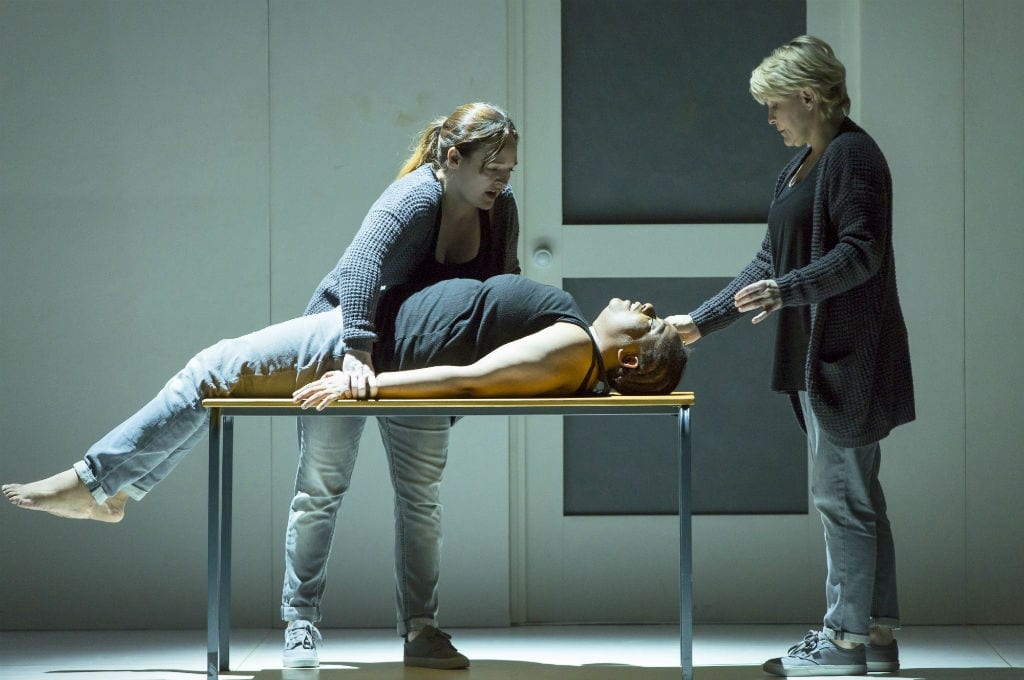“Behold the light of despair, the glare of anguish”. It is so difficult to know where to start with this extraordinary work by composer Philip Venables. It is all too easy to say that it is an opera about depression and suicide and to express admiration for the bleak and uncompromising musical vision that Venables brings to Sara Kane’s final play. It uses a musical language that is new to me. It combines singing, speaking, pre-recorded sounds and words, conventional modern orchestration and unconventional uses of instruments. The ‘conversations’ between different percussion instruments – as the words they ‘speak’ to each other are projected onto the white wall that forms the back of the performance area – are extraordinarily powerful. And we have six fine singers who occasionally sound like refugees from a forgotten opera by Strauss but who use their voices in many different ways – whispering, panting, keening, shouting – to bring to the audience this multi-layered message about suffering and psychosis.
As the action begins there is, disconcertingly, muzak playing from speakers while the orchestra, which is situated above the back of the stage, sit motionless. Six women emerge onto the stage, dressed identically, wearing blue jeans, black vests, and grey cardigans. There is no obvious main character – indeed, Kane made no direction about the names or numbers of performers. But for much of the piece the superb Gweneth-Ann Rand carries the burden of portraying a woman in the grip of depression, expressing the anger, despair, and terror that Venables distils from Kane’s play. Some of it seems to be a very specific record of a psychiatric regime that tries desperately to find medical solutions to a condition that Kane seems to imply is beyond cold scientific solutions. The five other performers are either aspects of the sufferer or her friends …. or medical staff …. or figures from myth. All six singers are excellent – and the way they work as an ensemble as actors and singers is spell-binding. The spells may be evil but they are powerful.

There is a coherence and rhythm to the production that is difficult to pin down but credit goes to director Ted Huffman and conductor Richard Baker for guiding a performance that provides no easy dramatic or musical clichés to hang on to but is never less than gripping. The players are from the Chroma Ensemble who make the complex score seem rhythmic and even melodious at times. The look of the piece, which involves a simple white box with three doors and a range of high tech visual effects, are a tribute to the inventiveness brought to the production by the creative team – Hannah Clark, D M Wood, and Pierre Martin.
“At 4.48 when sanity visits……” is a bleak phrase in a bleak opera. This is a challenging music drama which left me feeling exhausted and full of questions. There is little of the cathartic feeling that one sometimes feels after seeing the great tragic operas but I guess that is the point – that real depression is an experience of bleak despair, sometimes without redemption. And this opera has the courage of its sad convictions

